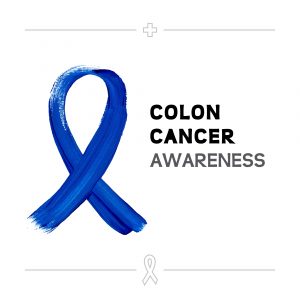
Comprising the longest portion of the large intestine, the colon plays a critical function in your digestion and your overall health. As the leftovers of nourishment move through the body by way of the colon, the last remaining nutrients and liquids are absorbed, and the waste is then excreted through the rectum as stool. Cancer that develops in the colon or rectum is frequently classed jointly as colorectal cancer.
The American Cancer Society calculates that approximately 150,000 new incidences of colon and rectal cancer are diagnosed each year. Thankfully, colorectal cancer is easily discoverable through a colonoscopy and, when identified early, the chances of surviving it are extremely good. To partner with a colonoscopy doctor near you and arrange for a colorectal cancer screening, contact Metropolitan Gastroenterology Associates in New Orleans, LA.
March is Colorectal Cancer Awareness Month, and Metropolitan Gastroenterology Associates endeavors to bring you the essential things you should know concerning colorectal cancer to help keep you and your family well. Keep reading to find out five important facts about colorectal cancer.
#1: Colon and rectal cancer is the second leading reason for cancer deaths.
Colorectal cancer is the second most common reason for cancer fatalities among women and men combine. The American Cancer Society estimates that about 52,000 patients will die from colorectal cancer in 2022. Due to routine colorectal cancer screenings and colorectal cancer awareness nationwide, colon and rectal cancer deaths are diminishing. Sadly, it is calculated that about one-third of Americans are not current on their routine colonoscopy screenings.
#2: Colorectal cancer rates impact men and women similarly.
The American Cancer Society theorizes that around 1 in 23 men and 1 in 25 women will be diagnosed with colon and rectal cancer at some point in the course of their lifespan. Both genders have about an equal chance of being diagnosed with the disease, meaning that gender is not a colon and rectal cancer factor of risk. The risk factors for colorectal cancer are:
- Being obese
- Being older than 45
- Having an inflammatory bowel disease
- Having a family history of colorectal cancer
- Excessive alcohol intake
- Smoking
#3: There may be no symptoms of colorectal cancer.
According to the Colon Cancer Coalition, about 60% of individuals identified with colon cancer are diagnosed with late-stage disease, possibly because they did not get an exam until there were signs of an issue. Individuals in the first stages of colorectal cancer will possibly show no indications of the disease, and when colon cancer does exhibit signs, it is generally late-stage. If you experience symptoms of colorectal cancer, they will likely be:
- A new change in bathroom habits, like ongoing diarrhea or chronic constipation
- Abdominal distress or discomfort
- Rectal bleeding
- Tiredness
- Inexplicable weight reduction
If you or a loved one is experiencing these concerning colon and rectal cancer symptoms, get in touch with a gastroenterologist in New Orleans, LA to schedule a colonoscopy as early as possible. You can find a local GI physician by getting in touch with Metropolitan Gastroenterology Associates.
#4: When detected early, colon and rectal cancer is extremely treatable.
Colorectal growths can take as long as 10 – 15 years to become cancerous. Precancerous tumors can be excised long before they begin to cause trouble, which makes colorectal cancer exceedingly avoidable compared with other various cancers. People diagnosed with localized, early colon and rectal cancer have a considerably superior survival rate than individuals whose colon or rectal cancer has metastasized. The five-year survival rate for limited colon and rectal cancer is about 90%. When detected late, the five-year odds of survival decrease to smaller than 10%. Please do not wait for signs to be examined.
#5: You should start standard colon cancer screenings by age 45.
If you are at average risk for colorectal cancer, then the U.S. Preventive Services Task Force recommends you have your initial colonoscopy when you are 45 years old and then once every decade if no irregularities are found. Individuals with a higher chance of colon and rectal cancer should schedule regular colonoscopies around every 3 – 5 years or as advised by a gastroenterologist. Several home test choices for colorectal cancer screening have been approved by the Food and Drug Administration, but colonoscopies remain the preferred standard for the discovery and avoidance of colon cancer.
Find a GI doctor in New Orleans, LA
If you are due for a routine colon cancer exam, please reach out to Metropolitan Gastroenterology Associates as soon as possible. We can schedule you with a GI specialist who will place your treatment needs and comfort first. Patients facing colon and rectal cancer and other gastrointestinal issues can rely on our physician-led system of GI doctors in New Orleans, LA. If you want to learn more about the fight against colorectal cancer and how to get a colonoscopy, please contact Metropolitan Gastroenterology Associates today.